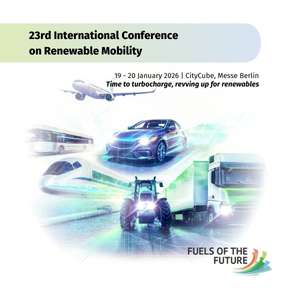Biofuel palm oil ban ‘has little impact on reducing deforestation’
A general ban on palm oil in biofuels in Europe punishes the wrong producers while having little impact on reducing deforestation, according to Jaboury Ghazoul, a professor of ecosystem management at ETH Zurich. He claims in an article published by the university that banning palm oil actually blocks good practice.
In April 2017, the European Parliament voted to ban the use of palm oil in biofuels by 2020, in a bid to limit the deforestation blamed on the expansion of oil palm plantation. Norway has set an even stricter target, banning the use of palm oil biofuels by public bodies by the end of 2017.
Ghazoul states that a simple palm oil ban “ignores the complexity of issues that swirl around the oil palm debate.”
“While environmental organisations have highlighted illegal and environmentally damaging activities by the palm oil industry in Southeast Asia, other palm oil producers risk being unfairly tarred with the same brush,” Ghazoul writes.
The scientist highlights Colombia, the world’s fourth largest palm oil producer, as an example where the feedstock is produced responsibly and sustainably. He points out that in Colombia, oil palm plantations have mostly been set up on land formerly cleared for cattle ranching. Of 155,100 hectares of new oil palm plantations established from 2002 to 2008, 51% were developed on former pastures, 29% on former croplands, and only 16% carved out of forests, savannas, and regenerating forest lands.
“While not perfect, nor completely deforestation-free, the environmental impact of oil palm produced in Colombia is relatively low.”
Ghazoul argues that the European biodiesel market is central to Colombia’s palm oil industry, pushing the country to work towards implementing the International Sustainability and Carbon Certification standards. He suggests that a blanket ban would reduce the EU’s influence in encouraging high sustainability standards across the world, and could send a counterproductive message to producer countries striving to meet such expectations.
A different solution
In the article, Ghazoul argues for a more nuanced policy, one that rewards industries and countries that promote sustainable standards.
“The EU should therefore implement its ban selectively, discriminating among palm oil sources bands on sustainability criteria.”
Pointing out that the EU’s Renewable Energy Directive already provides a mechanism for checking sustainability, he argues that it is this that needs improvement to take better account of biodiversity and social issues, rather than a ban on one feedstock.
“If a ban ignores differentiation and traceability, it risks undermining efforts to improve sustainability in producer countries, especially in regions that are making substantial efforts towards sustainability,” said Ghazoul. “A more selective ban based on effective traceability of sustainable palm oil will not only support good practices in Colombia, but will also encourage producers and agro-industries around the world to do likewise.”











